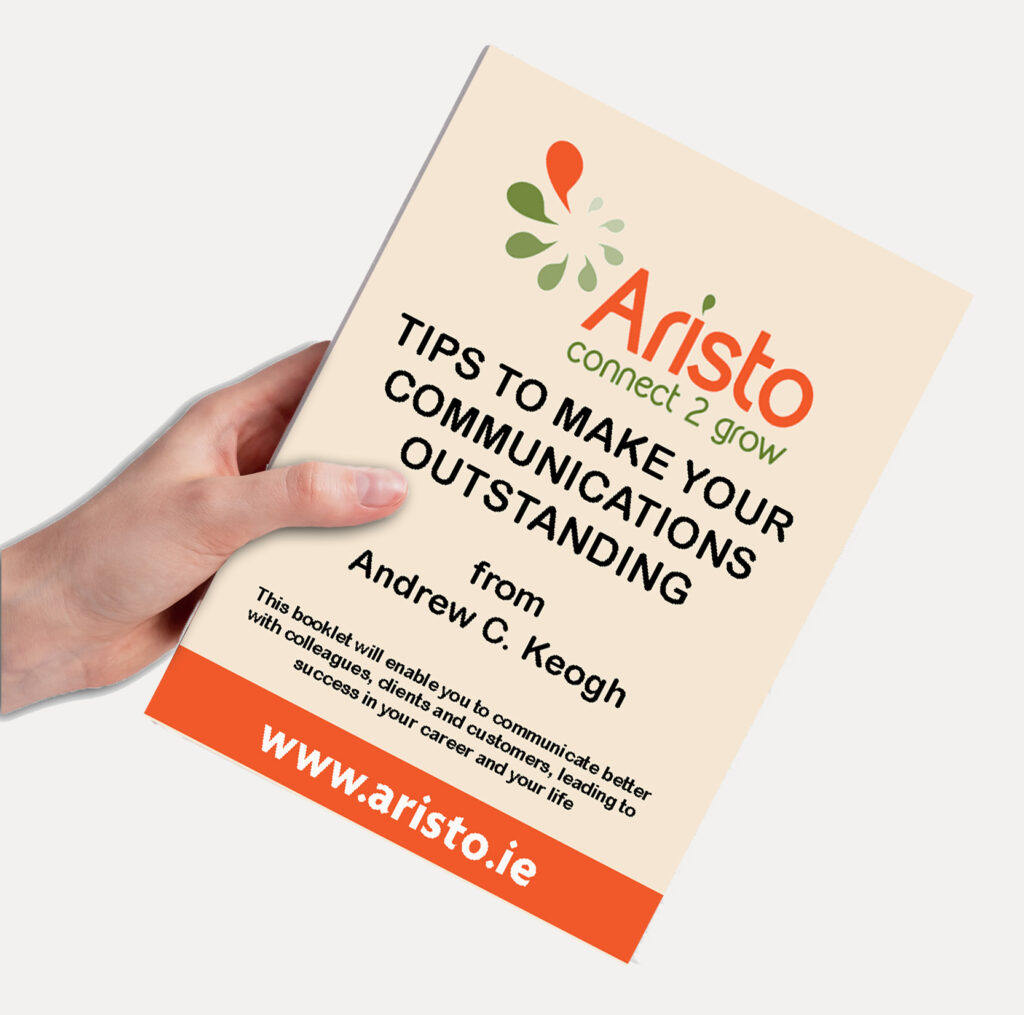
Tips When Speaking in Public
When I’m out socially, whether it be playing golf or with friends over dinner and it comes up in conversation that I coach people to speak in public, I am continually surprised by the number of successful and confident people who still express a fear of speaking in public, be it to an audience of five or five hundred.
Why is this?
Let me tell you what I believe is the cause.
The education system in Ireland and Europe generally puts emphasis on academic qualifications and not enough emphasis on emotional intelligence skills, of which good communications is a critical component. Whereas in America from an early age students are engaged in ‘show and tell’.
Also, I believe MBA programs in the States put more emphasis on presenting and pitching as part of the program.
I am not going to change the educational system single-handedly, but I am now coaching students and lecturers in all of the leading Universities in Ireland in my style of communication and presenting.
This I believe will lead to more confident and successful leaders in whatever career path they choose.
What I can change for the individuals and organisations who engage me to work with their people, is how they are coached and prepared for important conversations with audiences.
You will note that I use the word conversation and not presentation!
I believe we should always regard the opportunity to speak to an audience as a conversation, not a presentation or pitch. This immediately reduces the pressure on the speaker as it’s not as intimidating to have a conversation as it is to deliver a presentation.
My way is to ban all of the following words when preparing people for important meetings:
Presentation: usually dull and boring.
(think of the last conference you attended)
Pitch: nobody wants to be sold to.
Sermon: one of the reasons churches are empty.
Lecture: who wants to be lectured to?
When speaking to an audience it should always be a conversation. This is how all the great stand-up comedians engage their audiences. You go home not remembering the words (jokes) but knowing that you feel uplifted and energised.
Is this not the purpose of most business conversations?
My guarantee to all my clients is that I will never criticise them or tell them what they have done wrong, yet every person will be better as a result of our working together.
The degree as to how much they will improve is greatly dependent on the amount of preparation and work they put into implementing the advice and coaching I give them.
When I explain my methodology to clients, they regularly tell me that they need constructive criticism in order to improve.
My response is that constructive criticism is criticism with the word constructive placed in front of it to soften the blow, it’s still CRITICISM.
As one of my clients commented recently you never feel
RECONSTRUCTED AS A RESULT OF CONSTRUCTIVE CRITICISM.
My coaching philosophy is as follows:
Never: criticise
Always: praise (sincerely)
Leading to an atmosphere where people want to engage and improve.
Note: if you wish to become an effective LEADER the above principles also apply.
To compliment this article I’m linking to a 30 minute humorous video to the Sales Institute of Ireland which expands on and explains my philosophy in more detail.




